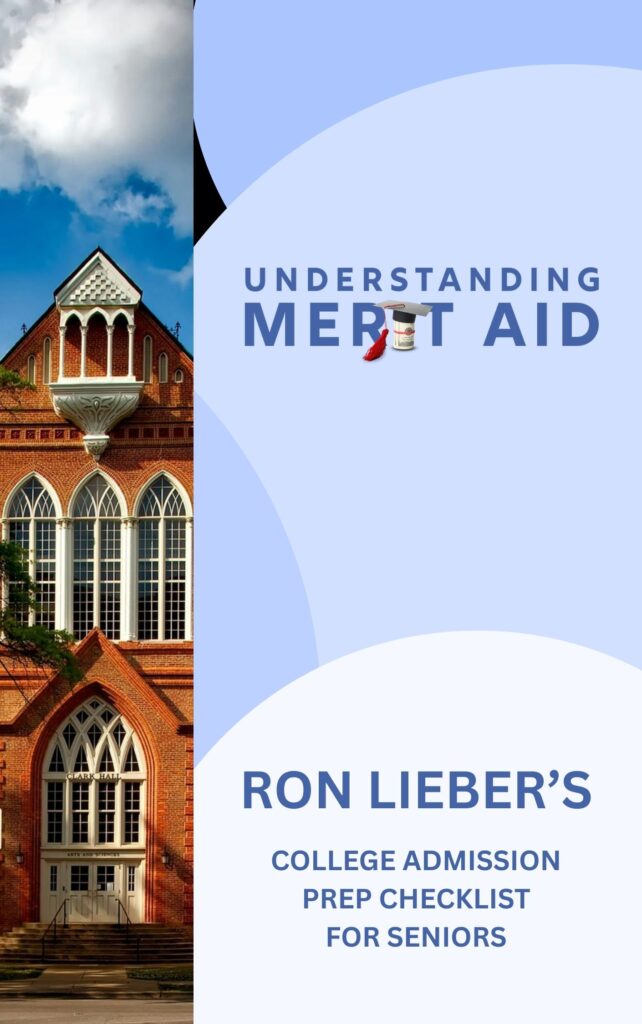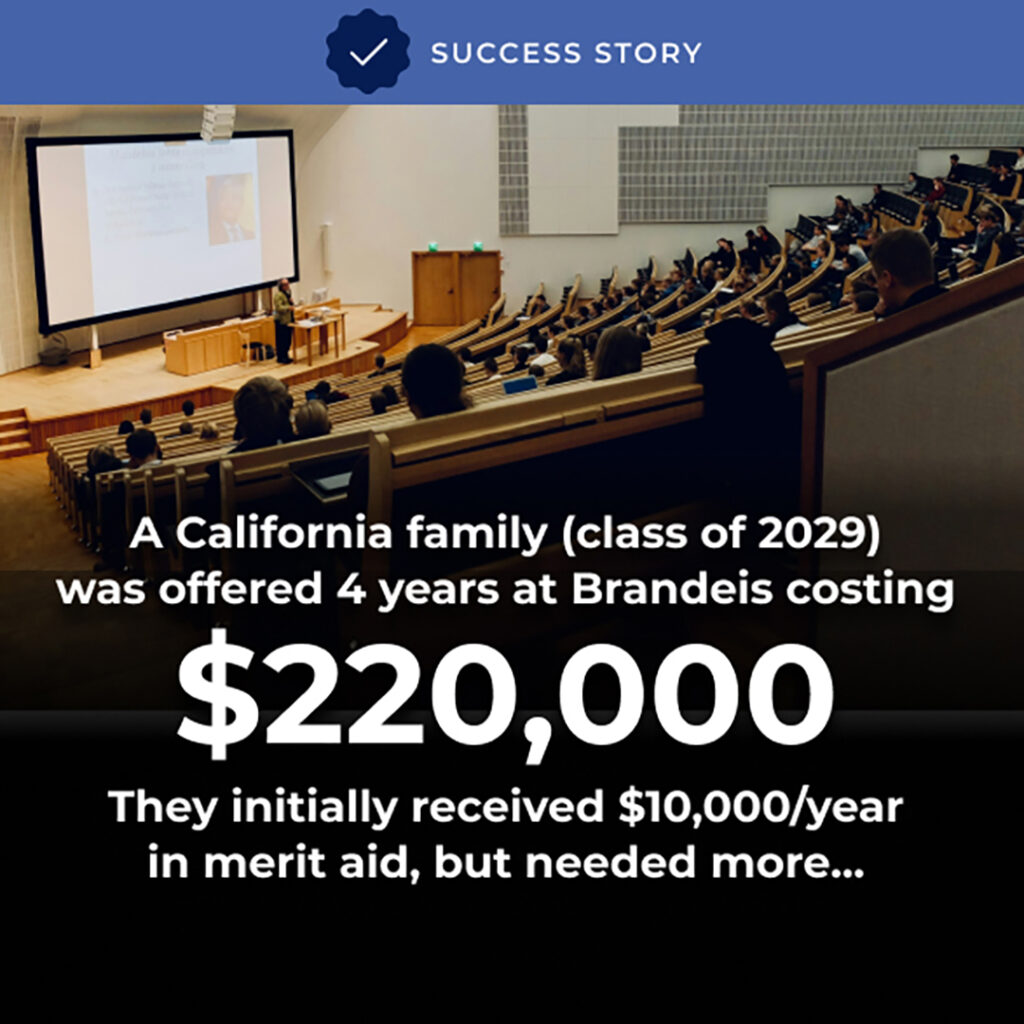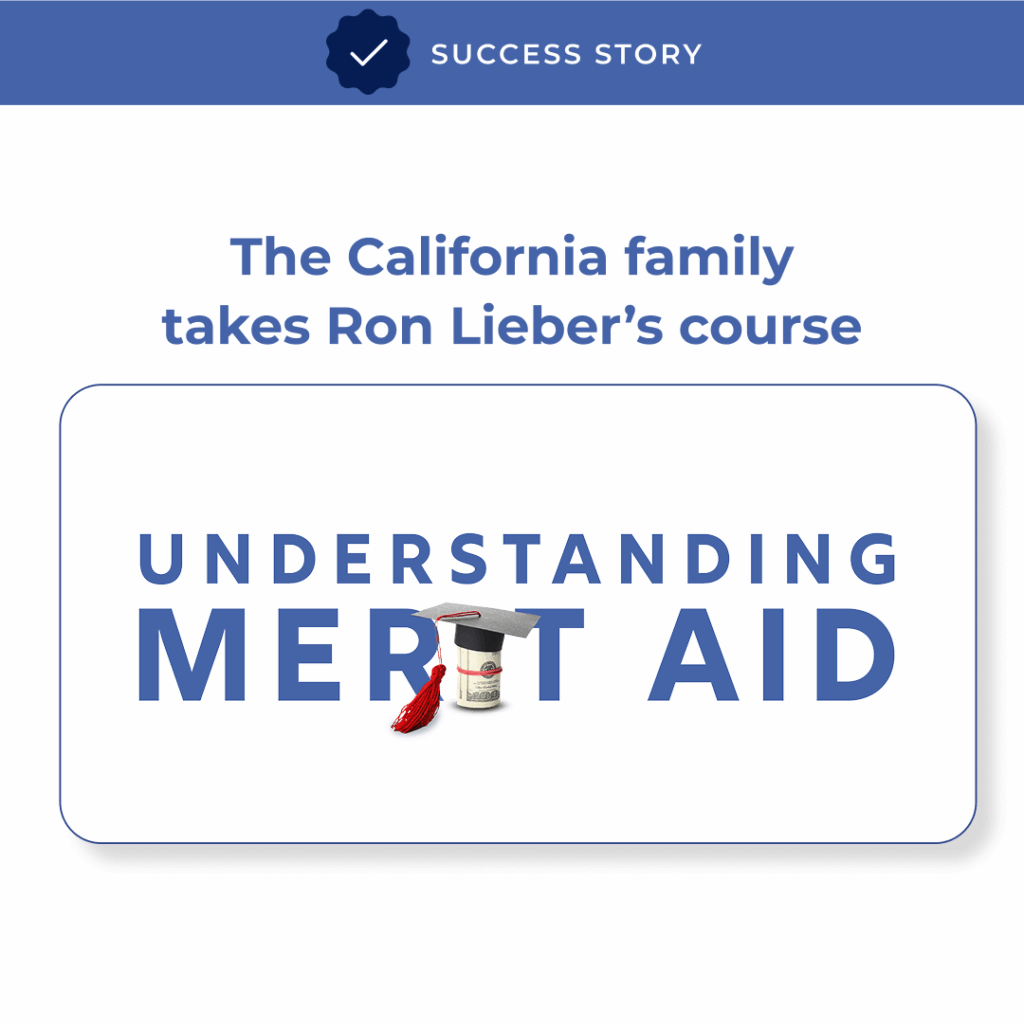Save up to $25,000 a year on college with Merit Aid.
Learn how from New York Times money columnist Ron Lieber.
And you don’t need to qualify for need-based financial aid.
If you don’t qualify for need-based aid and can’t—or don’t want to—pay full price for your kid’s targeted colleges, this course is for you. Nearly every school offers “Merit Aid,” the discounts and scholarships given to students who qualify for financial aid that is NOT based on need. In this course, you’ll learn exactly how to find, compare, and increase those offers.

Download Ron’s FREE Merit Aid College Checklist for high school seniors here!
Save time, reduce stress, and maximize your family’s financial returns.
Real Results: Merit Aid Course Success Stories
“Thank you! The most useful and practical advice we received as part of the college application process. I learned the ins and outs of the whole Merit Aid system (including how the schools use big data and the fact you need to work schools off one another). We wound up saving over $20k per year after taking the course.”
— Karen W., Connecticut parent, Class of 2028
“Fabulous course! Saved us lots of $ and gave us clarity. Very helpful!”
— Ina R., Parent, Class of 2028
“I thought colleges had all the power in the application process. Your insights helped me increase the Merit Aid for my son by $20,000 over four years, in just a ten-minute phone call with the school. Pretty good return on investment!!”
— Public high school parent, Drexel University, Class of 2028
Here’s what you’ll get in the video course
Plus bonus materials

About Ron
Ron Lieber is the Your Money columnist for The New York Times, where his work has received the Gerald Loeb award – business journalism’s highest honor – three times. He is the author or co-author of three New York Times bestsellers, including “The Price You Pay for College” and “Taking Time Off,” a book about gap years.
Ron lives in Brooklyn with his wife, Jodi Kantor (a fellow New York Times reporter) and his two daughters. He received need-based aid in middle school and high school at Francis W. Parker School in Chicago and in college, at Amherst, where his mother flew out each year to appeal his family’s aid package. Ron speaks frequently to audiences of all sizes about what to pay for college and how the system got so complicated.






The heads of the Judiciary committees in Washington have been reading my work about merit aid and the consultants who figure out what you're willing to pay. And in the wake of my reporting, they issued demand letters this week to these firms plus the College Board wanting to know more about their algorithms and the data they're grabbing when they interact with your kids. We'll see where this goes. Link in comments to my NYT exclusive about their investigation. ... See MoreSee Less
Happy publication week to @jselingo, who has done it again with "Dream School." It's a book for every family that wants to know more about how to find a college that may not be brand name or elite. It's also wise on who pays what and why. Take a look at my underlines: Households with incomes over $200,000 are paying more for college, even as those at $170k and under are not. Way (way) fewer people are paying full price, thanks to merit aid. A declared English major can get more merit aid than an engineer at the same school, something the colleges almost never admit to. And Jeff names names -- "skip-over schools," where fewer people are willing to pay full price. I gobbled this up, and you will too, especially if you're merit-aid minded. ... See MoreSee Less
Unhappy Common App drop day to all who denigrate! They actually gave these buttons out at a conference I was at two years ago, without any evidence of ironic intent. To those of you starting in today, facing down the possibility of 15-20 applications with your kids (and that many essays and art supplements and who knows what else), I feel for you. The Common App organization is promising a "refreshed application experience" this year, which, I dunno, could spark joy. You never know. 😐 ... See MoreSee Less